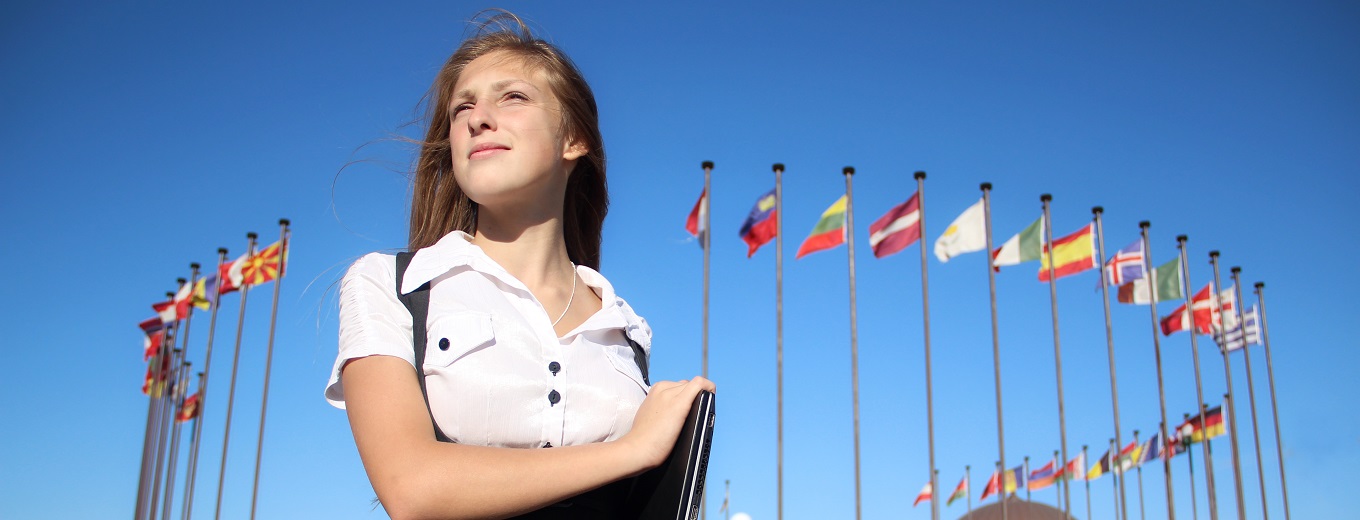For the first time, the EU recognises the central role that young people play in global sustainable development and EU external action.
In the European Year of Youth 2022, youth participation becomes more cross-cutting and enters new policy fields. On 4 October 2022, the European Commission (EC) and the EU High Representative for Foreign Affairs and Security Policy, Josep Borell, published the EU’s first Youth Action Plan in EU external action 2022-2027. The landmark communication makes young people strategic partners in EU foreign policy and international cooperation.
The Action Plan is based on a broad consultation over the last year, responds to the outcomes of the Conference on the Future of Europe (see SwissCore article), and builds on the evidence that was provided by the Joint Research Centre’s (JRC) policy report entitled ‘Youth in external action: bridging policies and data’. The policy report presents a data mapping on youth across the main topics of European foreign policy and makes recommendations to the EC and related stakeholders. The report identifies participation of young people in policy-making as a key dimension in all international policy frameworks on youth. This also applies to the EU external action policies and is therefore reflected in the new Youth Action Plan.
The Action Plan is an extension of the EU Youth Strategy’s external dimension and delivers on the global dimension of the EU Strategy on the Rights of the Child. The main aim is to work together with young people globally towards a more resilient, inclusive and sustainable world. The Action Plan is organised around three main pillars that echo the dimensions of the EU Youth Strategy: i. Partnership to Engage, ii. Partnership to Empower, iii. Partnership to Connect.
The ‘Partnership to Engage’ focuses on the meaningful participation of young people in politics and policy fora, within and beyond the EU. It includes a regular dialogue with young people and youth organisations in EU policy making, for example considering the advice of the Youth Sounding Board for International Partnerships, or mandatory consultations of youth organisations in the NDICI-Global Europe programme, which is the main funding instrument for EU global cooperation. Further, the action plan includes the installation of youth advisory structures for all EU representative offices (EU delegations) around the world. While some delegations already have such bodies to consult young people on EU policies and programmes, all delegations should have them operational by 2027. At the United Nations, the EU will set up a new EU@UN youth delegate programme, inspired by the existing national youth delegate programmes. The Action Plan also puts forward a new € 40 million Youth and Women in Democracy Initiative to support youth organisations that are working towards democratic participation of young people and women with capacity building, supporting networks and mentoring.
The ‘Partnership to Empower’ encompasses investments and support for the development of young people in EU partner countries. The main aspect in this regard is investments in education, skills provision, and sustainability, including the green and digital transitions, mental and physical health, sexual and reproductive health and rights, and economic opportunities. The main funding initiative in this regard is the new Global Gateway that EC President Von der Leyen announced last year, set out to mobilise investments from EU programmes, national funds, and the private sector, including funding from the European Investment Bank (EIB) or the European Bank for Reconstruction and Development (EBRD). The bulk of the EU’s own funding for the implementation of the Youth Action Plan will come from the NDICI-Global Europe instrument (from its European Fund for Sustainable Development Plus), as well as from the Pre-Accession Assistance instrument. The Actions Plan sets the goal of dedicating at least 10% of the EU’s investments in international cooperation to education projects specifically, with a focus on teacher training, as well as vocational education and training. Further, the Erasmus+ capacity building actions support employment and VET opportunities in EU partner countries. Lastly, the Action Plan unveils a new Youth Empowerment Fund of € 10 million for grassroots youth initiatives that address climate change or the inclusion of vulnerable young people.
The ‘Partnership to Connect’ is about creating networks and exchanges between young people in Europe and partner countries, as this is considered an important part of the people-to-people dimension of the Global Gateway. This approach is supported by the existing possibilities of the Erasmus+ programme to fund international mobility, financed by the EU external policy funds (NDICI). In 2023, for example, 25’000 young people from outside the EU will benefit from this Erasmus+ action. Further, the Action Plan announces the launch of a new Africa-Europe Youth Academy to connect and to offer leadership trainings to young Europeans and Africans and to create a network of activists.
The progress in the implementation of the Action Plan will be monitored in a mid- and end-term evaluation, with the purpose of feeding into the next programme cycle from 2028. While this new Youth Action Plan in External EU Action does not contain any major new initiatives or new funding, it is a strong recognition of the role young people play in international, sustainable development, peace and security.

